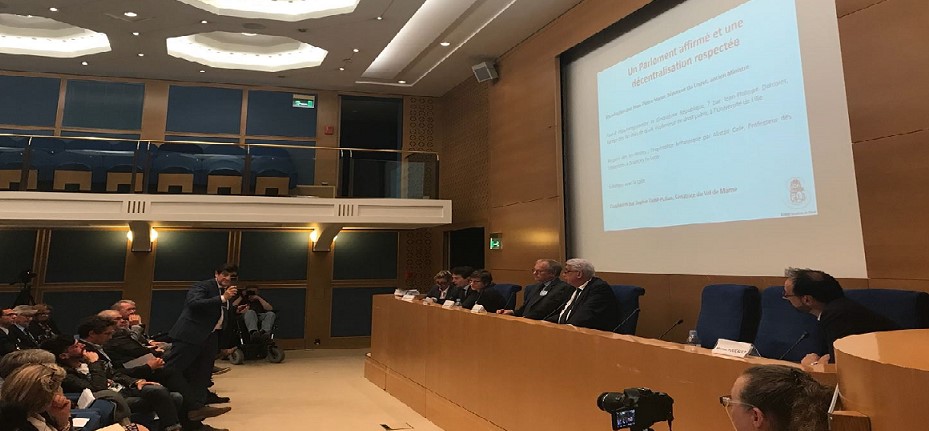Mae'r cynnwys hwn ar gael yn Saesneg yn unig.
Last Thursday I was invited to the French Senate, the second chamber, to contribute my thoughts on introducing territorial diversity into the French constitution, with a focus on drawing lessons from comparable European experiences. The specific brief was to discuss how the UK government had managed to introduce Devolution almost two years ago.
As with any Franco-British comparison, drawing lessons starts with the preliminary qualifiers and disclaimers. France is a ‘decentralised unitary state’ that is formally organised in a far more uniform manner than the UK has ever been: the same communes, departments, regions across the territory, with only a few exceptions (Paris, Lyons, Marseilles, the overseas territories). Ever since the far-reaching decentralisation reforms of 1982, it has been wrestling with the somewhat contradictory pressures of the autonomy required by the commitment to democratic liberties, with the equality ingrained in the Constitution – and in French mentalities. Equating equality with uniformity is a legacy of the public law tradition and the continuing oversight of the French state into the operation of local and regional authorities. But over thirty years of decentralisation have produced vibrant local and regional authorities, in practice involved in complex policy formulation and service delivery.
The Constitutional Reform is one of the key reform projects of France’s President Macron. What is the issue at stake? Since the 2003 constitutional reform, French local and regional authorities have been recognised the – constitutional – right to experiment in public service delivery. If a regional council seeks to run the ports, for example, there are legal provisions to allow this to take place. The 2003 reform of the constitution stipulates, however, that after a five year period, all local and regional authorities must adopt exactly the same measure, or else the right to ‘experiment’ falls. In practice, experimental service delivery has proved difficult, as the interests of French regions vary greatly across the country. The forthcoming constitutional reform package proposes, amongst other arguably more important changes, to allow particular local and regional authorities the right to use regulations to adapt government laws (rather like the statutory instruments during the first phase of Welsh devolution). The proposed reform also contains provisions to allow groups of local and regional authorities to exercise legislative discretion – not exactly a form of primary legislative power, but an incentive for local and regional authorities to propose an alternative distribution of competencies on a territory specific basis. And, finally, for the first time, the Island of Corsica is identified as a specific entity within the French constitution; though mainly symbolic, the absence of a specific recognition of Corsica has prevented major devolution-style reforms in the past, and is another indicator that the French Republic is attempting once again to come to terms with reconciling equality and territorial diversity.
The presentation to the Senators (a notably conservative group) introduced some findings from the Trust and Transparency in multi-level governance project, as well as framing discussion in more general terms about the contribution of the UK devolution system to thinking in terms of reconciling diversity and public service provision. From discussions in Paris, the French preference for equal and uniform public services is deeply ingrained. The future prospects for a French-style devolution will depend on the ability to convince rather sceptical decision-makers that enhanced autonomy can improve public services and ensure continued equal provision.
In the photo above, Alistair Cole is third from the right, adjoined by the Senators Jean-Pierre Sueur, Senator for the Loiret department, and Sophie Taillé-Polian, Senator for the Val-de-Marne department.

